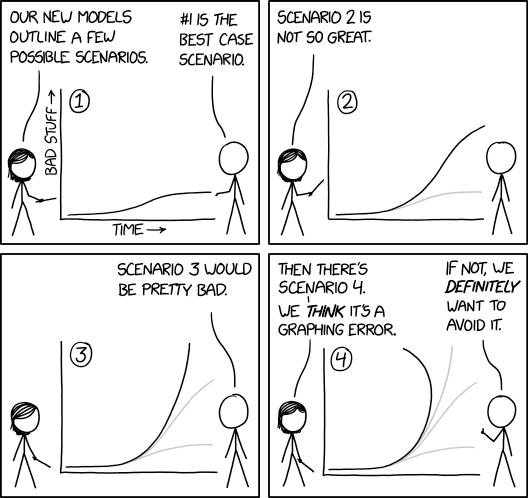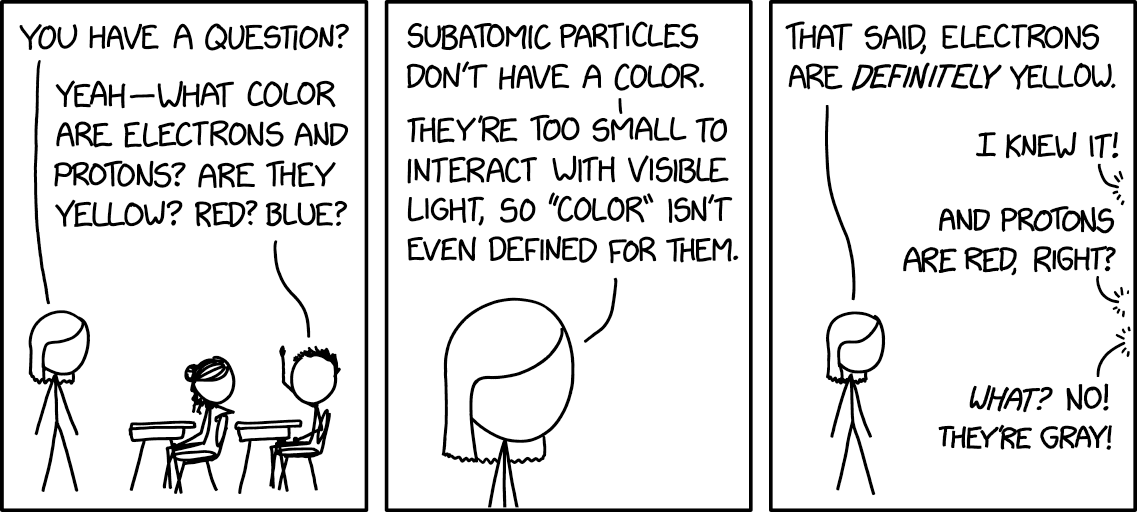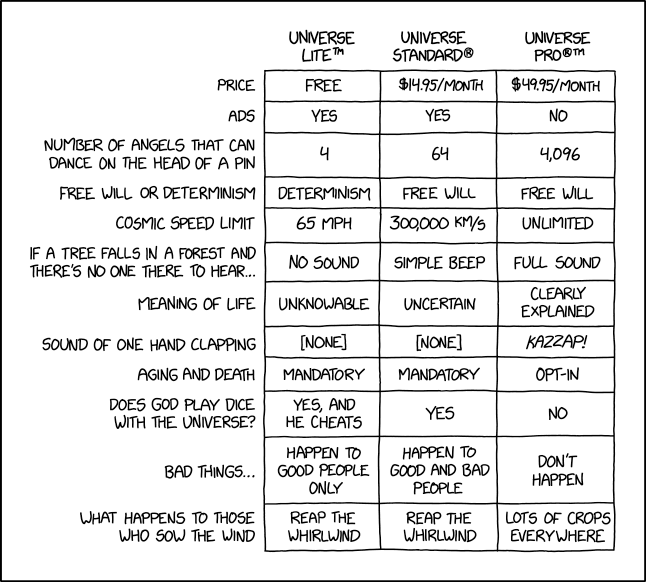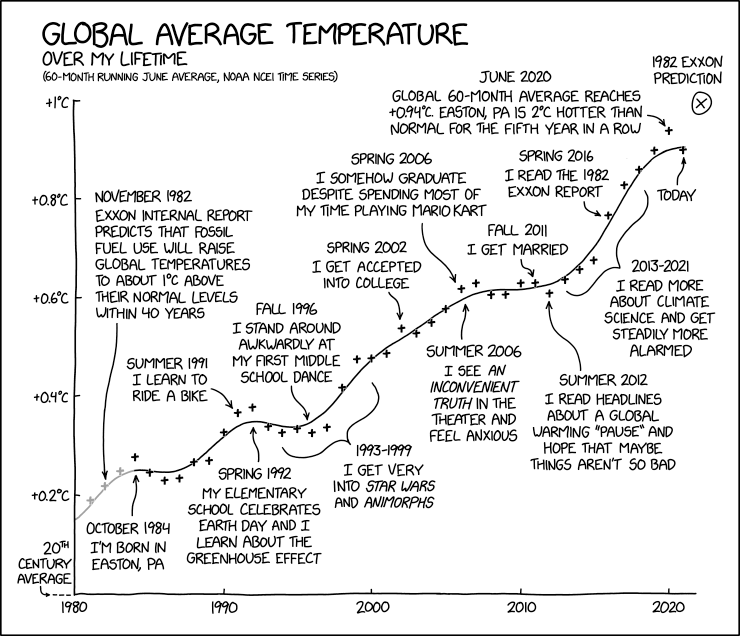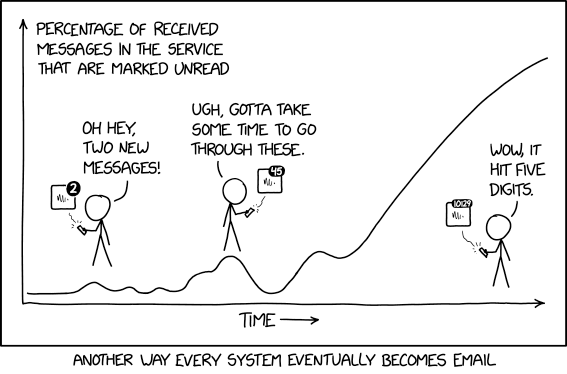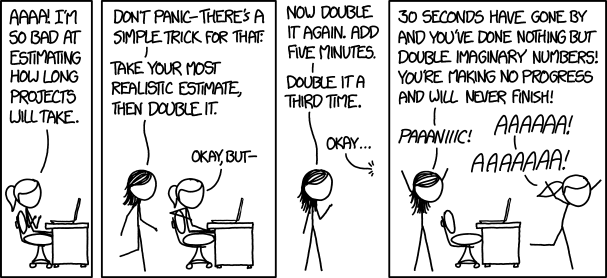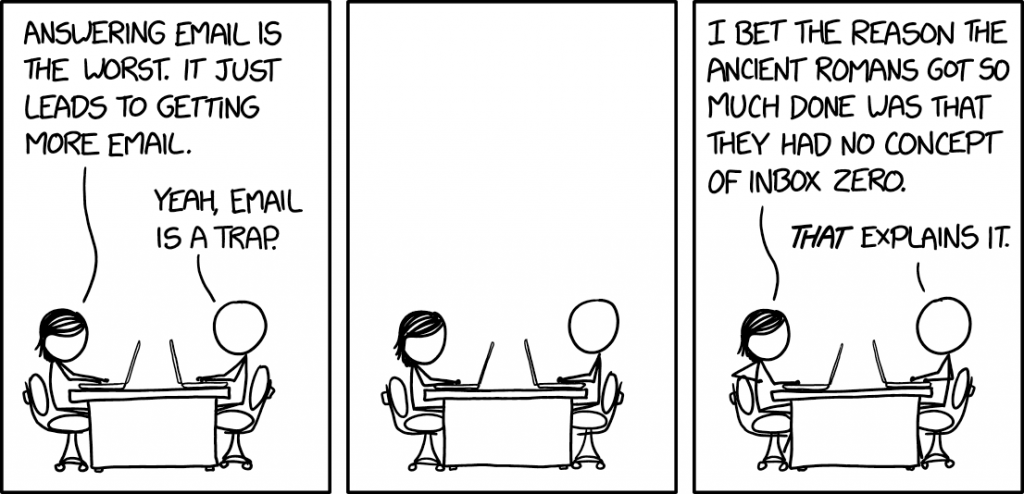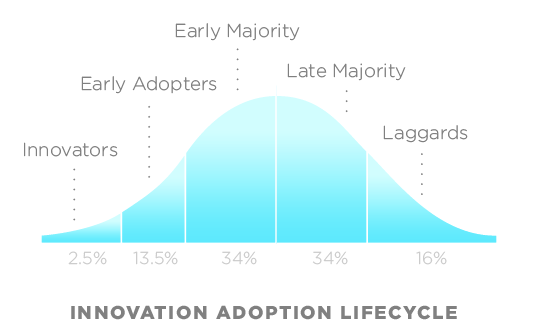- Britain's equivalent to Tutankhamun found in Southend-on-Sea (The Guardian) — "Gold foil crosses were found in the grave which indicate he was a Christian, a fact which has also surprised historians."
- Writer James Vlahos explains how voice computing will change the way we live (The Verge) — "If you’re only presenting one answer, it better not be junk. I think the conversation is going to more turn toward censorship. Why do they get to choose what is deemed to be fact?"
- Prisoner’s dilemma shows exploitation is a basic property of human society (MIT Technology Review) — "The next question this kind of work must answer is how exploitation can be avoided or what strategy exploited individuals must use to change their lot."
- What Can Video Games Teach Us About Instructional Design? (John Spencer) — "The best video games provide instant feedback. Players know where they have been, where they are, and where they are going. They don’t have to stop what they are doing in order to see their progress."
- It's Getting Way Too Easy to Create Fake Videos of People's Faces (Vice) — "Instead of teaching the algorithm to paste one face onto another using a catalogue of expressions from one person, they use the facial features that are common across most humans to then puppeteer a new face."
- Do Experts Listen to Other Experts? (Marginal Revolution) —"very little is known about how experts influence each others’ opinions, and how that influence affects final evaluations."
- Why Symbols Aren’t Forever (Sapiens) — "The shifting status of cultural symbols reveals a lot about who we are and what we value."
- Balanced Anarchy or Open Society? (Kottke.org) — "Personal computing and the internet changed (and continues to change) the balance of power in the world so much and with such speed that we still can’t comprehend it."
- Ape using a Smartphone (YouTube) — staring and scrolling is a primal urge, it would appear!
- Firefox Reality coming to SteamVR (Mozilla Mixed Reality blog) — the web on Valve's devices, with a few tricks to ensure users don't have to pull out of the immersive experience to click on stuff.
- How Banksy Authenticates His Work (RepRage) — so simple, yet so effective. Elegant solutions do the job without needless complexity.
- These tiny homes for ladybugs and spiders are designed to help them thrive (Fast Company) — very cool, although I wish the 3D printed designs were available for download!
- A Million People Live in These Underground Nuclear Bunkers (National Geographic) — incredible photos from Beijing, China.
Curiosity, projectories, and AI
I’ve read a lot of danah boyd’s work over the years, especially given how her research interests intersect with my work. In this long-ish post, she argues for an approach to AI driven by curiosity and the concept of ‘projectories’ (subject to guardrails).
I just returned from a three month sabbatical spent mostly offline diving through history and I feel like I’ve returned to an alien planet full of serious utopian and dystopian thinking swirling simultaneously. I find myself nodding along because both the best case and worst case scenarios could happen. But also cringing because the passion behind these declarations has no room for nuance. Everything feels extreme and fully of binaries. I am truly astonished by the the deeply entrenched deterministic thinking that feels pervasive in these conversations.Source: Resisting Deterministic Thinking | danah boyd[…]
The key to understanding how technologies shape futures is to grapple holistically with how a disruption rearranges the landscape. One tool is probabilistic thinking. Given the initial context, the human fabric, and the arrangement of people and institutions, a disruption shifts the probabilities of different possible futures in different ways. Some futures become easier to obtain (the greasing of wheels) while some become harder (the addition of friction). This is what makes new technologies fascinating. They help open up and close off different possible futures.
[...]
Even though deterministic thinking can be extraordinarily problematic, it does have value. Studying the scientists and engineers at NASA, Lisa Messeri an Janet Vertesi describe how those who embark on space missions regularly manifest what they call “projectories.” In other words, they project what they’re doing now and what they’re working on into the future in order to create for themselves a deterministic-inflected roadplan. Within scientific communities, Messeri and Vertesi argue that projectories serve a very important function. They help teams come together collaboratively to achieve majestic accomplishments. At the same time, this serves as a cognitive buffer to mitigate against uncertainty and resource instability. Those of us on the outside might reinterpret this as the power of dreaming and hoping mixed with outright naiveté.
[...]
Where things get dicy is where delusional thinking is left unchecked. Guard rails are important. NASA has a lot of guardrails, starting with resource constraints and political pressure. But one of the reasons why the projectories of major AI companies is prompting intense backlash is because there are fewer other types of checks within these systems. (And it’s utterly fascinating to watch those deeply involved in these systems beg for regulation from a seemingly sincere place.)
[...]
Rather than doubling down on deterministic thinking by creating projectories as guiding lights (or demons), I find it far more personally satisfying to see projected futures as something to interrogate. That shouldn’t be surprising since I’m a researcher and there’s nothing more enticing to a social scientist than asking questions about how a particular intervention might rearrange the social order.
[...]
I, for one have no clue what’s coming down the pike. But rather than taking an optimistic or a pessimistic stance, I want to start with curiosity. I’m hoping that others will too.
Synesthetic xkcd
I’m a migraineur and there’s an overlap between that group of people and those who are synesthetes. But it turns out that my kids, who do not (yet?) suffer from migraines, also associate colour strongly with things that other people do not usually associate colour.
For example, days of the week. We’ve hard arguments over what colour ‘Monday’ is, for example. So this xkcd cartoon made me laugh.
Source: xkcd: Electron Color
Life product tiers
A bit of fun from xkcd, but with some underlying truth in terms of how people experience life almost as if it were different product tiers.
Source: xkcd: Universe Price Tiers
A Timeline of Earth's Average Temperature
I can’t argue with every anti-vaxxer and climate denialist, but I can debate a few on my timeline. And this xkcd is another useful thing to point towards when they talk about how climate change is nothing new…
Source: xkcd: Earth Temperature Timeline
Global temperatures: 1980-2021
This xkcd chart starts in 1980 which is when I was born so, although it has Randall Munroe’s details on it, in some ways it also feels personal to me.
Saturday shiftings
I think this is the latest I've published my weekly roundup of links. That's partly because of an epic family walk we did today, but also because of work, and because of the length and quality of the things I bookmarked to come back to...
Enjoy!

FC97: Portal Economics
Most of us are still trapped in the mental coordinates of a world that isn’t waiting for us on the other side. You can see this in the language journalists are still using. The coronavirus is a ‘strategic surprise’ and we’re still very much in the ‘fog of war,’ dealing with the equivalent of an ‘alien invasion’ or an ‘unexpected asteroid strike.’ As I said back in March though, this is not a natural disaster, like an earthquake, a one-off event from which we can rebuild. It’s not a war or a financial crisis either. There are deaths, but no combatants, no physical resources have been destroyed, and there was no initial market crash, although obviously the markets are now reacting.
The crisis is of the entire system we’ve built. In another article, I described this as the bio-political straitjacket. We can’t reopen our economies, because if we do then more people will die. We can’t keep them closed either, because our entire way of life is built on growth, and without it, everything collapses. We can give up our civil liberties, submitting to more surveillance and control, but as Amartya Sen would say, what good is a society if the cost of our health and livelihoods is our hard fought for freedoms?
Gus Hurvey (Future Crunch)
This is an incredible read, and if you click through to anything this week to sit down and consume with your favourite beverage, I highly recommend this one.
Coronavirus shows us it’s time to rethink everything. Let's start with education
There’s nothing radical about the things we’re learning: it’s a matter of emphasis more than content – of centralising what is most important. Now, perhaps, we have an opportunity to rethink the entire basis of education. As local authorities in Scotland point out, outdoor learning could be the best means of getting children back to school, as it permits physical distancing. It lends itself to re-engagement with the living world. But, despite years of research demonstrating its many benefits, the funding for outdoor education and adventure learning has been cut to almost nothing.
George Monbiot (The Guardian)
To some extent, this is Monbiot using a different stick to bang the same drum, but he certainly has a point about the most important things to be teaching our young people as their future begins to look a lot different to ours.
The Machine Pauses
In 1909, following a watershed era of technological progress, but preceding the industrialized massacres of the Somme and Verdun, E.M. Forster imagined, in “The Machine Stops,” a future society in which the entirety of lived experience is administered by a kind of mechanical demiurge. The story is the perfect allegory for the moment, owing not least to its account of a society-wide sudden stop and its eerily prescient description of isolated lives experienced wholly through screens.
Stuart Whatley (The Hedgehog Review)
No, I didn't know what a 'demiurge' was either. Apparently, it's "an artisan-like figure responsible for fashioning and maintaining the physical universe".
This article, which not only quote E.M. Forster, but also Heidegger and Nathaniel Hawthorne, discusses whether we really should be allowing technology to dictate the momentum of society.
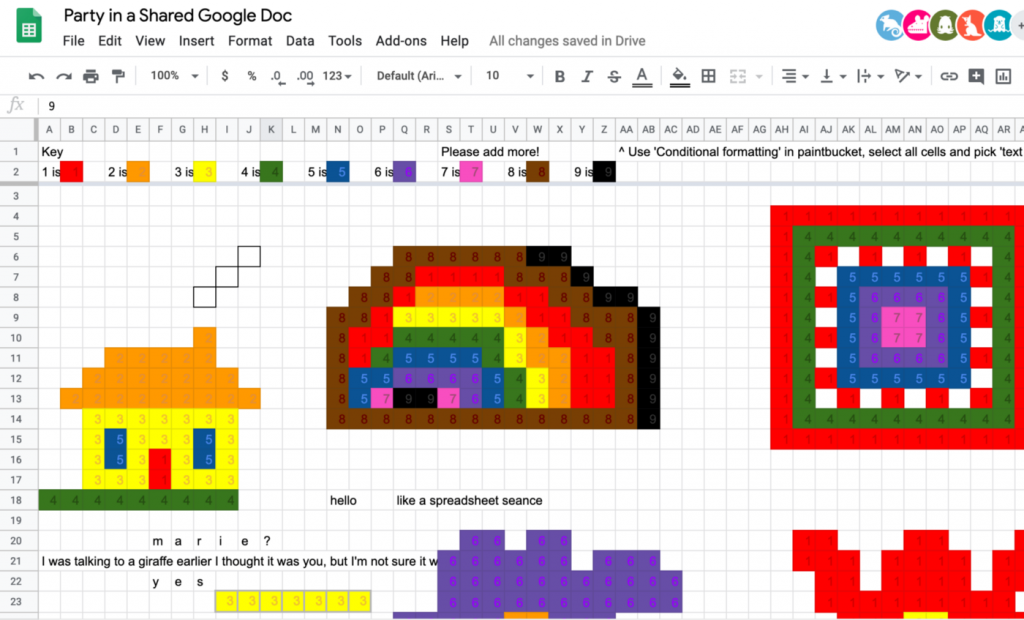
Party in a Shared Google Doc
The party has no communal chat log. Whilst I can enable edit permissions for those with the party link, shared google docs don’t not allow for chat between anonymous animals. Instead conversations are typed in cells. There are too many animals to keep track of who is who. I stop and type to someone in a nearby cell. My cursor is blue, theirs is orange. I have no idea if they are a close friend or a total stranger. How do you hold yourself and what do you say to someone when personal context is totally stripped away?
Marie Foulston
I love this so much.
Being messy when everything is clean
[T]o put it another way, people whose working lives can be mediated through technology — conducted from bedrooms and kitchen tables via Teams or Slack, email and video calls — are at much less risk. In fact, our laptops and smartphones might almost be said to be saving our lives. This is an unintended consequence of remote working, but it is certainly a new reality that needs to be confronted and understood.
And many people who can work from a laptop are also less likely to lose their jobs than people who work in the service and hospitality industries, especially those who have well-developed professional networks and high social capital. According to The Economist, this group are having a much better lockdown than most — homeschooling notwithstanding. But then, they probably also had a more comfortable life beforehand.
Rachel Coldicutt (Glimmers)
This post, "a scrapbook of links and questions that explore how civil society might be in a digital world," is a really interesting look at the physicality of our increasingly-digital world and how the messiness of human life is being 'cleaned up' by technology.
Remote work worsens inequality by mostly helping high-income earners
Given its potential benefits, telecommuting is an attractive option to many. Studies have shown a substantial number of workers would even agree to a lower salary for a job that would allow them to work from home. The appeal of remote work can be especially strong during times of crisis, but also exists under more normal circumstances.
The ongoing crisis therefore amplifies inequalities when it comes to financial and work-life balance benefits. If there’s a broader future adoption of telecommuting, a likely result of the current situation, that would still mean a large portion of the working population, many of them low-income workers, would be disadvantaged
Georges A. Tanguay & Ugo Lachapelle (The Conversation)
There's some interesting graphs included in this Canadian study of remote work. While I've written plenty about remote work before, I don't think I've really touched on how much it reinforces white, middle-class, male privilege.
The BBC has an article entitled Why are some people better at working from home than others? which suggests that succeeding and/or flourishing in a remote work situation is down to the individual, rather than the context. The truth is, it's almost always easier to be a man in a work environement — remote, or otherwise. This is something we need to change.

A first look at Unreal Engine 5
We’ve just released a first look at Unreal Engine 5. One of our goals in this next generation is to achieve photorealism on par with movie CG and real life, and put it within practical reach of development teams of all sizes through highly productive tools and content libraries.
I remember showing my late grandmother FIFA 18 and her not being able to tell the difference between it and the football she watched regularly on the television.
Even if you're not a gamer, you'll find this video incredible. It shows how, from early next year, cinematic-quality experiences will be within grasp of even small development teams.
Grand illusion: how the pandemic exposed we're all just pretending
Our pretending we’re not drowning is the proof we have that we might still be worth saving. Our performing stability is one of the few ways that we hope we might navigate the narrow avenues that might still get us out.
A thing, though, about perpetuating misperceptions, about pretending – because you’re busy surviving, because you can’t stop playing the rigged game on the off-chance somehow that you might outsmart it, because you can’t help but feel like your circumstances must somehow be your fault – is that it makes it that much harder for any individual within the group to tell the truth.
Lynn Steger Strong (The Guardian)
Wouldn't be amazing if we collectively turned to one another, recognised our collective desire not to play 'the game' any more, and decided to go after those who have rigged the system against us?
How to improve your walking technique
What research shows is that how we walk, our gait mechanics, isn’t as “natural” as we might believe. We learn to walk by observing our parents and the world around us. As we grow up, we embody the patterns we see. These can limit the full potential of our gait. Some of us unconsciouly prevent the pelvis and arms from swinging because of cultural taboos that frown upon having a gait as being, for example, too free.
Suunto
My late, great, friend Dai Barnes was a barefoot runner. He used to talk a lot about how people walk and run incorrectly, partly because of the 'unnatural' cushioning of their feet. This article gives some advice on improving your walking gait, which I tried out today on a long family walk.
Header mage via xkcd
Friday fabrications
These things made me sit up and take notice:
Image via xkcd
The smallest deed is better than the greatest intention
Thanks to John Burroughs for today's title. For me, it's an oblique reference to some of the situations I find myself in, both in my professional and personal life. After all, words are cheap and actions are difficult.
I'm going to take the unusual step of quoting someone who's quoting me. In this case, it's Stephen Downes picking up on a comment I made in the cc-openedu Google Group. I'd link directly to my comments, but for some reason a group about open education is... closed?
I'd like to echo a point David Kernohan made when I worked with him on the Jisc OER programme. He said: "OER is a supply-side term". Let's face it, there are very few educators specifically going out and looking for "Openly Licensed Resources". What they actuallywant are resources that they can access for free (or at a low cost) and that they can legally use. We've invented OER as a term to describe that, but it may actually be unhelpfully ambiguous.
Shortly after posting that, I read this post from Sarah Lambert on the GO-GN (Global OER Graduate Network) blog. She says:
[W]hile we’re being all inclusive and expanding our “open” to encompass any collaborative digital practice, then our “open” seems to be getting less and less distinctive. To the point where it’s getting quite easily absorbed by the mainstream higher education digital learning (eLearning, Technology Enhanced Learning, ODL, call it what you will). Is it a win for higher education to absorb and assimilate “open” (and our gift labour) as the latest innovation feeding the hungry marketised university that Kate Bowles spoke so eloquently about? Is it a problem if not only the practice, but the research field of open education becomes inseparable with mainstream higher education digital learning research?
My gloss on this is that 'open education' may finally have moved into the area of productive ambiguity. I talked about this back in 2016 in a post on a blog I post to only very infrequently, so I might as well quote myself again:
Ideally, I’d like to see ‘open education’ move into the realm of what I term productive ambiguity. That is to say, we can do some workwith the idea and start growing the movement beyond small pockets here and there. I’m greatly inspired by Douglas Rushkoff’s new Team Human podcast at the moment, feeling that it’s justified the stance that I and others have taken for using technology to make us more human (e.g. setting up a co-operative) and against the reverse (e.g. blockchain).
That's going to make a lot of people uncomfortable, and hopefully uncomfortable enough to start exploring new, even better areas. 'Open Education' now belongs, for better or for worse, to the majority. Whether that's 'Early majority' or 'Late majority' on the innovation adoption lifecycle curve probably depends where in the world you live.
Things change and things move on. The reason I used that xkcd cartoon about IRC at the top of this post is because there has been much (OK, some) talk about Mozilla ending its use of IRC.
While we still use it heavily, IRC is an ongoing source of abuse and harassment for many of our colleagues and getting connected to this now-obscure forum is an unnecessary technical barrier for anyone finding their way to Mozilla via the web. Available interfaces really haven’t kept up with modern expectations, spambots and harassment are endemic to the platform, and in light of that it’s no coincidence that people trying to get in touch with us from inside schools, colleges or corporate networks are finding that often as not IRC traffic isn’t allowed past institutional firewalls at all.
Cue much hand-wringing from the die-hards in the Mozilla community. Unfortunately, Slack, which originally had a bridge/gateway for IRC has pulled up the drawbridge on that front, so they could go with something like Mattermost, but given recently history I bet they go with Discord (or similar).
As Seth Godin points out in his most recent podcast episode, everyone wants be described as 'supple', nobody wants to be described as 'brittle'. Yet, the actions we take suggest otherwise. We expect that just because the change we see in the world isn't convenient, that we can somehow slow it down. Nope, you just have to roll with it, whether that's changing technologies, or different approaches to organising ideas and people.
Also check out:
A little Friday randomness
Not everything I read and bookmark to come back to is serious. So here for the sake of a little levity, are some things I've discovered recently that either made me smile, or think "that's cool":
Header image: xkcd
A reminder of how little we understand the world
"The important thing in science is not so much to obtain new facts as to discover new ways of thinking about them." (William Lawrence Bragg)Science is usually pointed to as a paradigm of cold, hard reason. But, as anyone who's ever studied the philosophy of science will attest, scientific theories — just like all human theories — are theory-laden.
This humorous xkcd cartoon is a great reminder of that.
Source: xkcd
Baseline levels of conscientiousness
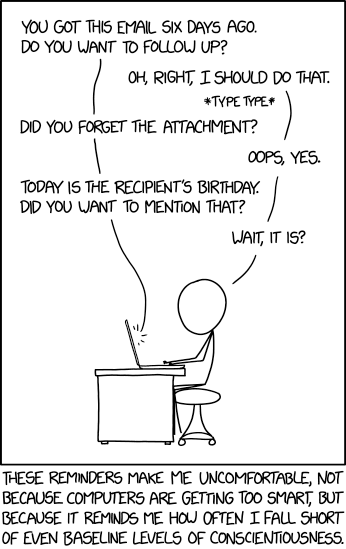
As I mentioned on New Years' Day, I’ve decided to trade some of my privacy for convenience, and am now using the Google Assistant on a regular basis. Unlike Randall Munroe, the author of xkcd, I have no compunction about outsourcing everything other than the Very Important Things That I’m Thinking About to other devices (and other people).
Source: xkcd
Meltdown and Spectre explained by xkcd
There’s not much we mere mortals can do about the latest microprocessor-based vulnerabilites, except ensure we apply security patches immediately.
Source: xkcd
